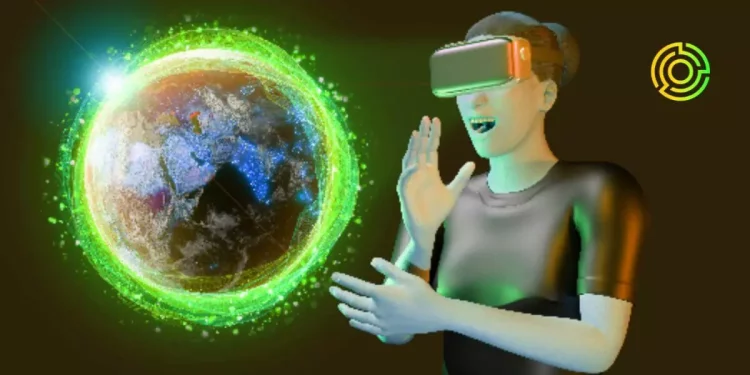Microsoft defines its metaverse goals, announcing the end of AltspaceVR and welcoming Microsoft Mesh.
After announcing it would close in 2017, Microsoft stepped in and the company came under the tech giant’s wing.
Now, Microsoft is putting an end to the virtual reality platform AltspaceVR, a network of immersive social spaces that invited people to hang out with friends or colleagues as 3D avatars.
Goodbye AltspaceVR and welcome Microsoft Mesh
AltspaceVR will cease to exist on March 10, 2023, and Microsoft says it will put more resources into its Microsoft Mesh mixed reality platform.
https://twitter.com/AltspaceVR/status/1616491365793427457
“We’re looking forward to what’s next, especially the launch of Microsoft Mesh, a connection and collaboration platform, which will begin rolling out to workplaces around the world,” the announcement said.
“In the near term, we are focusing VR efforts on experiences in your workplace, learning alongside our early partners and customers, to ensure we deliver a foundation that enables trust, security, and compliance.”
Gaming aside, Microsoft has built many of its products with an enterprise-first mindset, and virtual and mixed reality is no different. The company notes that it plans to “expand” its VR plans to consumers once they are established for the workplace.
AltspaceVR may never have built a formidable user base-a difficult tasks in VR, given the custom hardware required-but the company was very early on the social applications of virtual reality.
By 2015, AltspaceVR had created a robust social VR platform where users could wander through wood-paneled rooms with serene views, watch Taylor Swift music videos together, or browse the Internet through a virtual browser.
Spatial audio made the experience more immersive, replicating the way humans perceive sound in real environments and laying the groundwork for virtual events.
At the time, most of the resources and attention in VR were directed toward next-generation gaming applications, not virtual meeting spaces.
Meta launched Horizon Worlds, an AltspaceVR-like experience with its own neutral, inoffensive interiors and not-quite-real-life-like avatars, six years later.
It’s unclear whether Microsoft plans to integrate the product into its other VR initiatives or abandon the project altogether.
Given the timing, it’s likely that AltspaceVR’s fate is related to Microsoft’s drastic company-wide consolidation, detailed this week.
Amid heavy layoffs in the technology industry, Microsoft announced that it will cut 5% of its workforce, affecting 10,000 employees.
Satya Nadella, CEO of Microsoft, pointed to economic uncertainty and the downturn following the early pandemic tech boom as the reasons for the substantial cuts.
“We will continue to invest in areas that are strategic to our future, which means we are allocating both our capital and our talent to areas of secular growth and long-term competitiveness for the company while divesting in other areas,” Nadella said.
It’s unclear whether Microsoft is scrapping some of its metaverse plans or whether AltspaceVR is just a casualty of broad cuts across the company.
It was just a few months ago that Facebook boldly pitched itself as “Meta,” plunging the industry into a fizzing cycle of anticipation around a more immersive, possibly virtual reality-driven vision of social networking.
A year later, the metaverse discourse has already quickly passed through the backlash phase, leaving the future of avatar-driven virtual social spaces in the shadows.
The metaverse may never have needed special hardware – non-VR online worlds are still thriving in 2023 – but it’s worth remembering one company that was already exploring such possibilities years before the tech giants came along.
The project, launched in 2021, focuses on improving collaboration in the work environment through VR-enabled devices and 3D Mesh avatars.
Despite Microsoft’s tough decision to “end” AltspaceVR, and the community’s reaction to it, the company expressed enthusiasm for what’s to come, revealing its current approach to VR in the workplace while ensuring a foundation of security, trust, and compliance.
Microsoft has been very active in recent months
Microsoft’s recent collaboration with the World Economic Forum (WEF) and Accenture to develop the metaverse “Global Collaboration Village” platform, which will enable virtual public-private collaboration, accentuates its interest in infusing VR in the workplace.
Also a few months ago Meta partnered with Microsoft to bring Office 365 applications to the metaverse in an attempt to improve the usability of its virtual reality platform.
And recently Microsoft just confirmed its investment in OpenAI, the company behind ChatGPT.
Follow us on our social networks and keep up with everything that happens in the Metaverse!











































